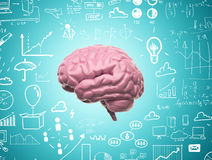
From ScienceDaily: A perennial topic in human evolution is, what gave humans an advantage? A logical response to the question is: Name just about anything and someone will make a case out of it. A little while ago, it was meat. This time, it’s starch.
People with more copies of the AMY1 gene — and corresponding higher concentrations of the amylase enzyme in their saliva — were found to digest starchy carbohydrates faster.
They also displayed a higher blood glucose response to foods containing starch such as bread and pasta, but not sugary foods. As sugary foods shouldn’t be digested by amylase, the lack of an association indicates the difference in starch digestion observed was due to differences in the enzyme and therefore differences in the number of copies of the gene.
Lead author Dr Fiona Atkinson from the University’s Charles Perkins Centre and Faculty of Science, explained the findings were significant for better understanding of human evolutionary biology.
“The wide variation in the number of copies of the AMY1 in humans is not found in other primates,” Dr Atkinson said.
“There has been speculation it could represent an adaptation to the influence of diet during human evolution — perhaps associated with the shift from the low starch diet of hunter-gatherers to the high starch diets of Neolithic farmers.
“It’s also possible individuals with high numbers of copies of the gene had an advantage at certain times during human evolution. If, as has been argued, consumption of carbohydrates — particularly starch — aided accelerated expansion of the human brain, then higher levels of glucose in mothers’ blood during pregnancy may have supported the increasingly large brain and higher body fat of human infants compared to other primates.”Paper. (paywall) – Fiona S Atkinson, Dale Hancock, Peter Petocz, Jennie C Brand-Miller. The physiologic and phenotypic significance of variation in human amylase gene copy number. The American Journal of Clinical Nutrition, 2018; 108 (4): 737 DOI: 10.1093/ajcn/nqy164 More.
The explanation of the advantage is fairly sketchy; such individuals might have a different gut biome.
All such explanations have in common that they are looking for a way that the human brain evolved immaterial consciousness quite by accident on account of a fluke. As the sheer number of flukey explanations adds up (see below), it becomes quite obvious that it wasn’t a fluke.
 Some of the other explanations on offer for human brain development: Rosehip neurons; Or else:
Some of the other explanations on offer for human brain development: Rosehip neurons; Or else:
Some say we evolved large brains alongside small guts, but another research team found no such correlation. Alternatively, fluid societies (relative to chimps) explains it. And, according to some, mental illness helped. Chimpanzees’ improved skills throwing excrement are also said to provide hints about human brain development. (The ability to throw projectiles at very high speeds is apparently unique to humans.) Our ancestors had to grow bigger brains anyway, we are told, to make axes and hunt something besides elephants. Collective intelligence (“ideas having sex”), whatever that means, has been really important to human evolution as well. More.
See also: Human evolution researchers: Social challenges decreased brain size
Did large brains cause Neanderthals to go extinct?
Homo naledi’s small but sophisticated brain challenges belief in “an inevitable march towards bigger, more complex brains.”
Human origins: The war of trivial explanations
Follow UD News at Twitter!
See also: Meat eating speeded human face evolution?